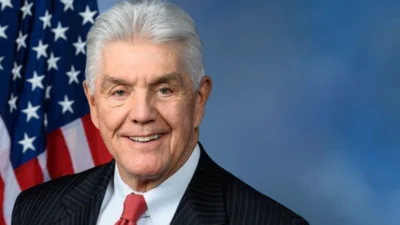Today, the U.S. Senate Energy and Natural Resources Committee held a hearing to examine the nuclear fuel life cycle. During the hearing, Chairman Joe Manchin (D-WV) discussed the need to reduce the United States’ and our allies’ dependence on Russian nuclear fuel and the significant investments the U.S. is making in advanced nuclear reactors and other technologies that will help strengthen energy security and independence.
“With the passage of the Energy Act [of 2020], Inflation Reduction Act, the Bipartisan Infrastructure Bill, and the CHIPS and Science Act, Congress has authorized new programs and provided significant financial investment to ensure the continued operation of our current nuclear fleet and the development of the next generation of advanced reactors and technologies. We have also created programs to ensure that the energy communities which have powered our country to greatness have the opportunity to lead the way forward by building advanced nuclear reactors at shuttered fossil fuel sites.
“Yet, we still have work to do. Putin’s war in Ukraine has brought the geopolitical risk of not having energy independence from those who don’t share our values into clear focus. But it’s not just Europe that became reliant on cheap Russian energy. We, as the superpower of the world, are still dependent on Russian nuclear fuel. Right now, our country is deficient in nearly every aspect of the fuel cycle. This must change and it must change quickly,” said Chairman Manchin.
During the hearing, Chairman Manchin asked all of the panelists about the Inflation Reduction Act’s (IRA) and Bipartisan Infrastructure Law’s (BIL) impact on the nuclear industry.
“We passed the BIL and the IRA, can you tell me from a professional standpoint what effect you think that has had on our energy grid, energy mix and the amount of attraction as far as investments in our country?” asked Chairman Manchin.
“Senator, total game changer. It allows our investors to support us when we’re extending the lives of the assets. The conversation for the last ten years has been about closing nuclear plants. Now we’re in this welcome discussion about continuing their operation for generations to come. As to your question about international investment, I would simply say that what the U.S. has done is recognize a gap in so-called ESG investing around clean energy resources that many investors have now closed. In other words, they’ve included nuclear energy as a part of that picture. That’s important to our investor base and ultimately to our success as a company. So, total game changer, transformational,” said Mr. Joseph Dominguez, President and Chief Executive Officer of Constellation.
“I think in particular the prospect of the tax credits is expanding the likelihood, from our assessment, that existing nuclear power plants will extend their licenses and that new nuclear power plants will have the financial incentives to be build out. I expect that similar expansion on the grid, based on some of the provisions in those bills, will also increase grid reliability, security and sustainability,” said Dr. Kathryn Huff, Assistant Secretary for Nuclear Energy at the U.S. Department of Energy (DOE).
“There’s a lot in those bills. I would say briefly the civilian nuclear credit is incredibly important for some of the reactors in the fleet. The production tax credit in the IRA is already being very much welcomed. And particularly the fact that the production tax credit and the investment tax credit include nuclear where nuclear had been excluded from some of these credits in the past is very, very helpful,” said Dr. John Wagner, Director of the Idaho National Laboratory.
Chairman Manchin also questioned all three witnesses about reducing reliance on Russia, extending Price-Anderson, and providing a policy pathway for the safe disposition of nuclear waste.
“Do we need to eliminate our and our allies’ dependence on Russian nuclear fuel and conversion and enrichment?”asked Chairman Manchin.
“Yes,” replied all three panelists.
“Do we need to extend Price-Anderson?” asked Chairman Manchin.
“Yes,” replied all three panelists.
“Do we need to create a federal agency to use a community consent-based approach to establish nuclear waste facilities?” asked Chairman Manchin.
“Yes,” replied all three panelists.
“Do you believe we are eliminating base load fuels faster than we’re replacing with dependable, reliable energy?”asked Chairman Manchin.
“Yes,” replied all three panelists.
Chairman Manchin continued, “Mr. Dominguez, if you’d like to elaborate a bit since you’re in this mix right now. I've always understood there are only two baseload fuels. They're totally dependable, reliable and affordable, but there are only two that you can count on 24/7, and that was nuclear and coal. Now, we replace coal with gas, but we've seen what happens — you got a lot of things that might not be as reliable.”
“I think we’re getting dangerously close to papering over what is going to be one of the most difficult engineering challenges our nation will face and that's, again, trying to replace an energy system that has these guarantees to families and businesses that we’ll be on all the time, with resources that don't operate when people dispatch them but when Mother Nature permits them to operate. I do believe that we've overlooked these problems in the early days of the introduction of some of these intermittent resources and the consequence has been fairly small so far because the percentage of penetration has been minimal,” replied Mr. Dominguez.
The hearing featured witnesses from the U.S. Department of Energy, Idaho National Laboratory and Constellation.
To watch the hearing in full, please click here.
Original source can be found here.






